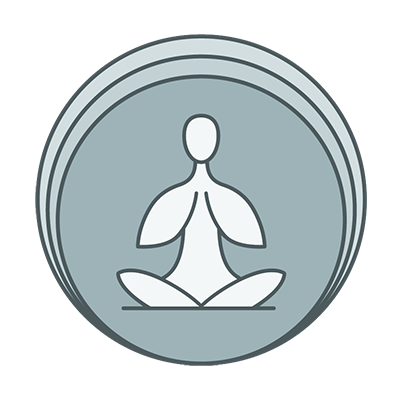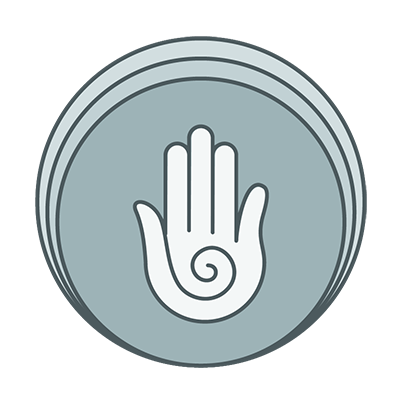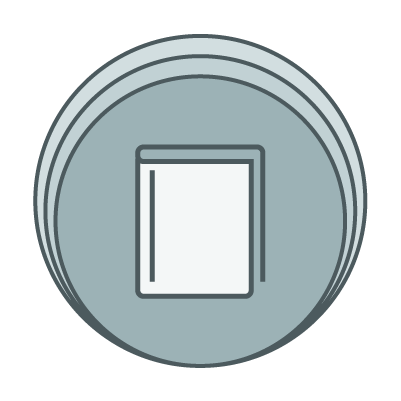Sleep Series, pt. 1: How our Daytime Affects our Nighttime
When your eyes are tired
the world is tired also.
– from “Sweet Darkness” by David Whyte
I love these lines from poet and Buddhist practitioner, David Whyte. They capture a universal experience of what happens to our perceptions when we’re tired—they become colored or distorted, making it difficult to see ourselves, others, and the world around us clearly.
Anyone who has had or currently experiences sleep challenges on a regular basis knows this experience well, not to mention the negative effects on mood and thinking that show up at the same time. These can be felt after just one night of poor sleep.
When poor sleep is a regular experience, these effects can become amplified, leaving us feeling further adrift on rough nighttime seas. In turn, the effects of poor sleep can bring in their wake other unwelcome consequences to our metabolism, immune response, brain function, and the operation of all of our other physiological systems, eroding our health and well-being. Turning the tide of poor sleep can feel especially Herculean when we’ve tried a number of solutions with varying or inconsistent success or no success at all.
So how do we start turning the tide of poor sleep, especially when we’re not Hercules?

Shifting our Perspective on Sleep
What if we began by taking a look at how we sleep from another perspective? In fact, what if we consider our sleep issues to be daytime issues that show up at night? Might the tidal forces that keep us from falling asleep, staying asleep through the night, and waking in the morning refreshed start to look less daunting and mysterious and a strategy and tools for turning them around less elusive?
In my experience, personally and with clients, the answer is yes!
I find this perspective especially useful for beginning to take a holistic, yogic approach to turning the tide on poor sleep. This approach couples fundamental sleep principles, such as following good sleep hygiene, with an understanding of our overall health and daily lifestyle habits and activities.
How we live during the day holds a number of clues to what keeps us awake at night and adrift on the rough seas of poor sleep or sleeplessness. Here, we want to look at some key areas of our daytime habits and activities. Some of them may surprise you.
1. How We Breathe
How we breathe during waking hours affects both how we breathe when we sleep and how we sleep.
Do we breathe through the nose 24/7 or through the mouth? The nose provides essential health-supporting functions that the mouth does not. Some of these include filtering and humidifying the air we take in and producing an important chemical that supports taking the air we breathe in deeper into the lungs where blood flow and gas exchange is the greatest. This supports greater oxygenation of our cells and tissues.

Do we breathe diaphragmatically 24/7, with the upper chest, neck, and shoulders quiet and relaxed? Keep in mind that while all breathing involves diaphragmatic movement, we look for a lateral flaring of the lower ribcage coupled with the expansion of the belly as the diaphragm contracts and moves down on inhalation. As this is happening, the upper chest, neck, and shoulders remain quiet.
Diaphragmatic breathing is further supported by the abdominal muscles, including the pelvic floor muscles, on exhalation. Diaphragmatic breathing along with nasal breathing supports air taken in on inhalation moving more deeply into the lower lobes of the lungs, where, again, blood flow and gas exchange is the greatest.
I’ll talk about this in greater detail in another series of blog posts and interviews with experts in functional breathing and pranayama.
Lastly, do we breathe through the nose and diaphragmatically whether at rest, during moderate activity, more strenuous exercise, and while sleeping? Nasal, diaphragmatic breathing supports good sleep in a number of ways:
- Builds energy, which is needed not only to fall asleep but to stay asleep.
- Reduces chronic sinus congestions
- Guards against snoring
- Decreases the number of times we urinate 24/7
- Supports reduction in food cravings (salt, sugar, caffeine, other stimulants) and their interference with sound sleep
- Supports healthy digestion
- Decreases sympathetic activation and increases parasympathetic activation
- Decreases chronic and acute pain
2. What, When, and How we Eat
Diet and food choices also affect how well our body systems, starting with digestion, function and affect each other, either supporting sleep or contributing to poor sleep. A well-running body clock, in turn, supports maintaining the proper schedule of our body’s processes, including when we go to sleep and when we wake up. Diet and food choices also affect how well our body systems, such as digestion and nervous, function and affect each other, either supporting sleep or contributing to poor sleep.
In general, we want to:
- Avoid eating processed foods, which tend to be high in sugars, salt, and artificial ingredients. These kinds of foods can alter physiological functioning in a way that challenges good sleep.
- Take our evening meal 3–4 hours before going to be bed and avoid eating foods with sugar in the evening. On days that we work or have other activities into the evening, it’s best to have a larger meal at mid-day and a smaller meal later in the day.
- Start the day with a substantial breakfast that includes protein.
- Focus on eating when we eat rather than eating while doing other activities, which supports proper digestion.
- Eat in a state of calm, which also supports proper digestion.
- Eat only when we’re hungry and avoid mechanical eating, which can blunt both our awareness of hunger and hunger satiation, both of which can affect our digestion and other physiological systems.
- Maintain presence while preparing food, as a disturbed or otherwise distracted mind can affect food preparation with potential downstream effects on digestion (eg, left out ingredient, wrong proportions)
3. Exercise: What We Do, How Much, & When
We need a sufficient amount of energy to fall asleep, enter deep sleep, and stay asleep. Taking regular exercise for 30 minutes 5–7 times per week, if not daily, and using nasal, diaphragmatic breathing while exercising helps build the energy we need to sleep well and wake feeling rested. Exercising late in the day, close to bedtime can leave us feeling too alert, energized, and stimulated.

4. Our Day-to-Day Schedule and the Pace of Activity
The length of our days and the rhythm and ratio of occupied to free space in them impacts our nervous system and brain function. We need to have time and space in our day to reduce sensory stimulation and give our brain and nervous system a rest. We need to be mindful of:
- How full our days are
- When activity starts and when it ends
- How tightly “coupled” our activities are (eg, back-to-back or with sufficient space or break time in between)?
- When we can build in conscious breaks for movement, rest, and relaxation, or have the presence to take advantage of opportune openings to take a break when they present themselves
5. Stress and its Management
This is a huge topic, which encompasses, in part, our schedule and pace of activity along with the combination of types of stressors and their nature/degree. It also encompasses our typical, habitual response when something we care about is at stake. This is particularly important when we have experienced severe and/or chronic stress for which we haven’t had sufficient resources to manage, especially when this type of stress has occurred early in our lives. These kinds of early childhood stressors shape our nervous system and brain function and establish both conscious and unconscious stress responses that can affect our sleep. When we consider the various stresses in our lives, we want to look at areas of:
- Health, our own and those in our family and important support systems
- Family, immediate and extended, and close, all-but-blood friends
- Community
- Work
- Financial
6. Chronic Health Conditions
Whether we manage a chronic health condition and the effects of any treatment we receive or medications we take to manage those conditions. Chronic health conditions both impact and are impacted by our sleep and its quality. Treatment we receive and/or medications we take to manage them can also impact our sleep and its quality. Like stress and how we breathe, this is big topic, so for now, consider how any health condition we manage:
- affects our energy through the day – eg, peaks and valleys and how we manage the valleys
- triggers pain and discomfort
- impacts our mood (eg, anxiety and/or depression) and self-concept
- adds to other personal stressors related to care, treatment, and finances
Lifestyle Habits and Sleep
When I work with someone around sleep issues, I ask her to identify one lifestyle area in which she feels she can make an adjustment, something that is manageable and will have an impact. We also create a short yoga practice together to support sleep. This short practice is tailored specifically to her needs, interests, and goals.

Habits, particularly lifestyle habits around self-care, are some of the most ingrained habits we have and can take time to shift. Working small and strategically supports keeping everything manageable. We work with a reasonable lifestyle adjustment and the short practice until these new habits (lifestyle + yoga practice) feel solid and stable. This contributes to building confidence in herself around her agency to affect lasting change.
In part 2 of this blog post, I’ll talk about sleep hygiene along with yogic strategies and practices that support steering us into the calm waters of the nighttime seas.





